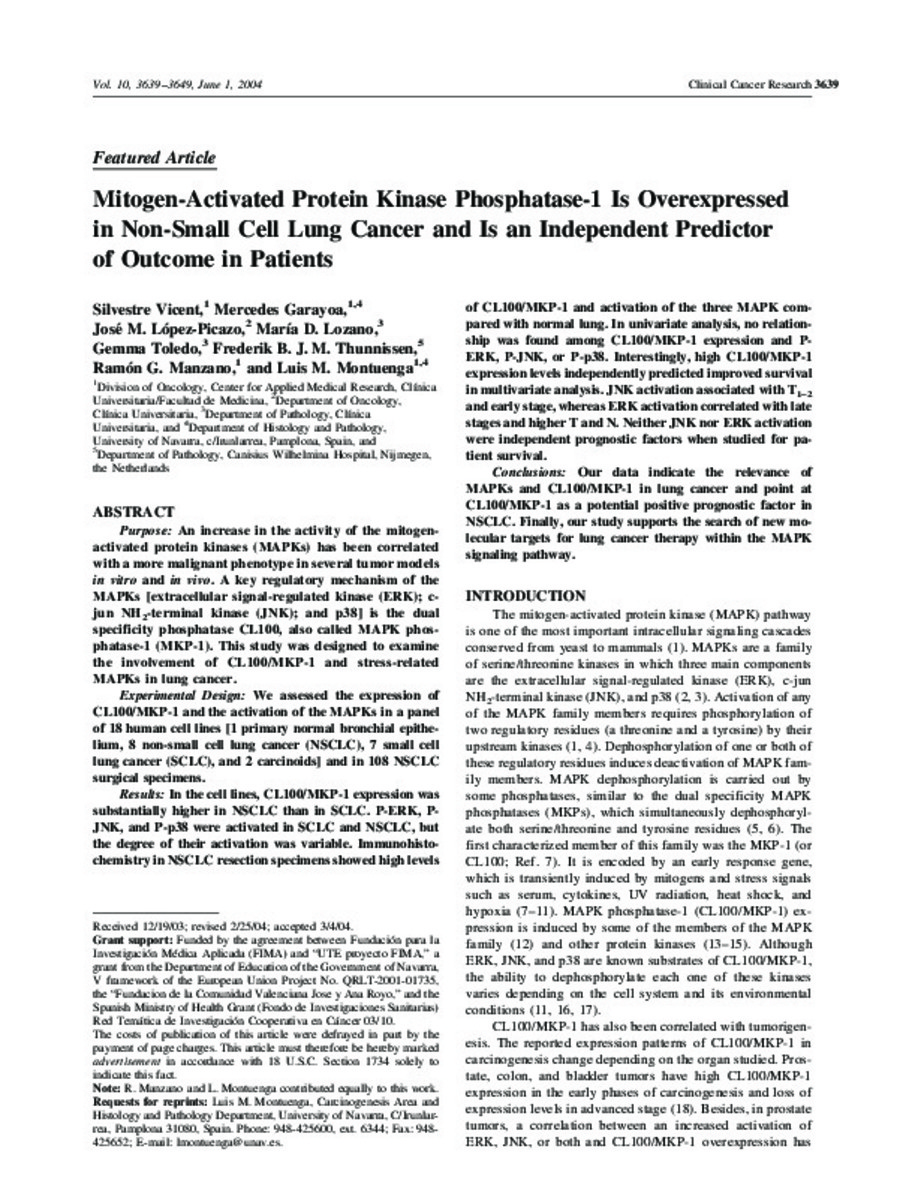Mitogen-Activated Protein Kinase Phosphatase-1 Is Overexpressed in Non-Small Cell Lung Cancer and Is an Independent Predictor of Outcome in Patients
Keywords:
Lung Neoplasms/therapy
Protein Phosphatase 1
Publisher:
American Association for Cancer Research
Citation:
Vicent S, Garayoa M, Lopez-Picazo JM, Lozano MD, Toledo G, Thunnissen FB, et al. Mitogen-activated protein kinase phosphatase-1 is overexpressed in non-small cell lung cancer and is an independent predictor of outcome in patients. Clin Cancer Res 2004 Jun 1;10(11):3639-3649.
Statistics and impact
0 citas en

0 citas en

Items in Dadun are protected by copyright, with all rights reserved, unless otherwise indicated.










